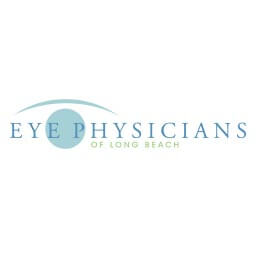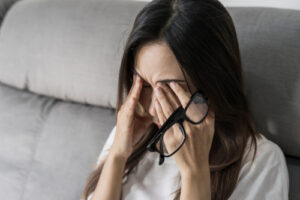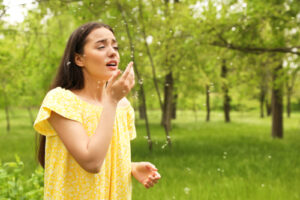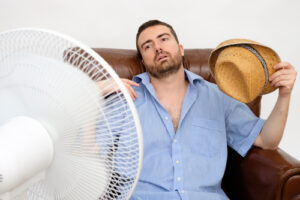Blog post by: Eye Physicians of Long Beach

If your eyes are constantly red, scratchy, gritty, and irritated, you might be suffering from dry eye syndrome. Having dry eyes is often characterized by tears that are not high quality, or you may start to produce fewer tears.
With seasonal changes, things can become complicated, resulting in symptoms that worsen as seasons change. Keep reading to find out if dry eye is seasonal!
Tips for Dealing with Seasonal Changes and Your Dry Eye Symptoms

The first and most crucial step is to have an accurate dry eye diagnosis from your ophthalmologist. Receiving this diagnosis will help you understand your dry eyes’ underlying cause and allow your ophthalmologist to determine the best treatment options.
Seasonal dry eyes can eventually become more severe. The sooner you seek treatment for your dry eye, the better. You’ll find relief and maintain good eye health. Otherwise, if your symptoms are left untreated, dry eye can lead to eye damage.
Besides taking medication, your ophthalmologist may recommend lifestyle changes like quitting smoking if you’re a smoker to help with your dry eyes. Your eye doctor might prescribe eye drops, oral antihistamines, or decongestant medications.
It’s important to note that some of these treatment options can compound the symptoms of dry eye. Also, clean your contact lenses. The cold weather combined with wearing contacts can heighten your dry eye symptoms. That is why it’s vital to ensure you always wear clean contacts to reduce the risk of itching or infections.
Dry Eye During the Spring

The newness of spring and its beautiful scents is an opportunity to have fun outside. But it also comes with allergens and pollen that might make spring not so enjoyable if you suffer from dry eyes.
When pollen and allergens penetrate the tear film, they block the meibomian glands in the eyelids. As a result, the glands cannot produce the oils required to ensure a stable tear film, causing dryness in the eye.
For those that suffer from seasonal allergies, spring can become a miserable time due to more severe allergy symptoms. This may include watery eyes, runny nose, and general discomfort if you spend time around allergens that cause severe allergic reactions.
The worst time of year for people that suffer from allergies by far is the spring. If you have seasonal allergies and suffer from dry eye syndrome, your misery is twofold because your symptoms only exacerbate themselves. So, what can you do?
The best thing is to try your best not to be around the things you know cause your allergies. This may include pollen, pet dander, plants and flowers outside, and even dust. You can try changing out of clothing that meets any allergens before going into your house.
Have a special hamper that’s only for clothing that may have touched pollen or other contaminants, and have clean clothes waiting for you in your garage or entryway to keep contamination to a minimum. You can also be highly diligent when it comes to cleaning.
At least once a week or more, make sure to clean your house. Clean any vents, wash your linens on your bed, vacuum if you have carpet, and wipe down all hard surfaces like countertops and any places that may attract dust. These tips can make a massive difference in dry eye symptoms and debilitating allergy symptoms in the spring!
Dry Eye During the Summer
The humidity and heat during the warm summer months can rob your eyes of moisture. When your eyes don’t have enough water or lubrication, it can leave them dry and painful.
Using an AC to find relief from the sweltering heat can only worsen the drying effects, leading to an endless cycle of dry eyes. Also, salt from the ocean, chlorine from swimming pools, and the dust in the air can decrease how much moisture is in your eyes.
Most people spend a lot more time outdoors due to warmer weather in the summer months. If you don’t use adequate eye protection to protect your eyes from the sun, your tear film can evaporate faster, resulting in dry eyes.
Countering the Symptoms of Red Eyes in the Summer

- Wear sunglasses with proper UV protection
- Adjust your air conditioner and fans to ensure they are not blowing directly into your eyes, which can lead to drying them out more
- One of the most common and effective solutions for dry eyes is applying artificial tears
- Drink plenty of water to keep your eyes hydrated and healthy during the hot summer months
- Remember to maintain good eye hygiene by washing your face to keep your eyes clean and dirt-free
- Put on a hat to add an extra layer between your eyes and the sun, especially if you spend time outside
- Don’t forget to eat plenty of fresh vegetables and fruits
Dry Eye in the Fall
In the fall, the colder, drier air may be what’s responsible for dry eye symptoms. Other factors that can stir up dry eye symptoms during the fall months include airborne allergens like ragweed pollen and mold spores.
Outdoor activities in autumn can aggravate reactions to allergens. Do your best to avoid being outdoors if you know that air quality is low or pollen-heavy that day.
Mitigating Dry Eye Effects in the Fall

- Moisten your eyes and keep them lubricated by using artificial tears
- Avoid activities that trigger allergens, such as yard work
- Do your best to steer clear of low humidity environments and heated rooms that will dry out your eyes
- Wear safety eyewear when working outside to prevent any irritants from getting into your eyes
Dry Eye During the Winter
Dry eye is quite common in the winter season due to the cold, harsh winds, dry heat indoors, and dry outdoor air. These temperature variations cause the quick evaporation of moisture inside your eyes.
Although it doesn’t get quite as cold in California, that doesn’t mean that winter won’t affect your eyes or dry them out during the colder months! Because your tear glands can’t produce fluid fast enough to keep your eyes hydrated, the result is dry eye.
Minimizing Dry Eyes During the Winter

- Drink as much water as you can to maintain the moisture in your eyes
- To remedy the drying effects of winter weather, you can use a humidifier to increase moisture inside your home
- Rewetting drops can help lubricate the eyes if they feel dry or irritated
- Don’t sit too close to heaters or fires
- You can exacerbate symptoms of dry eye syndrome by wearing contact lenses. If your eyes still feel irritated, you can try switching to silicone-based hydrogel contacts instead or give your eyes a break for a couple of days and wear prescription glasses.
Highly Individualized Dry Eye Treatment
If you have dry eyes, you do not have to suffer in silence. Fortunately, dry eye is a treatable condition.
The experienced ophthalmologists at Eye Physicians of Long Beach will conduct a comprehensive evaluation. From there, they will create a customized treatment plan suited to your individual needs.
Get the help you need for your dry eye by scheduling your appointment at Eye Physicians of Long Beach in Long Beach, CA, today! If your dry, itchy, and irritated eyes have taken over your life, it’s time to do something about it!
